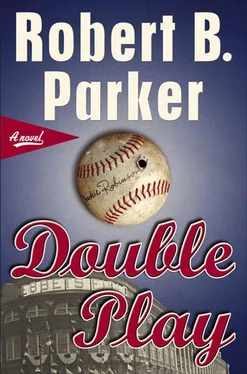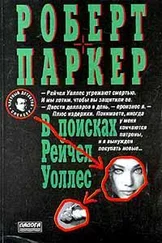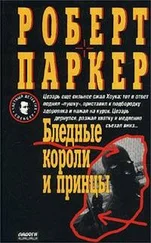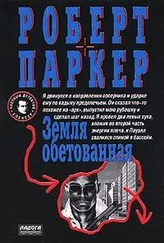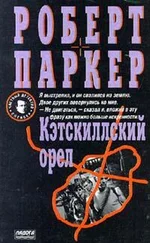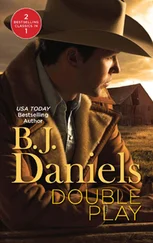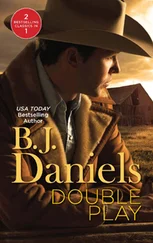When my father was through working he’d have a beer, Ballantine as I recall, and he’d pour some in a shot glass and say to me, “Want a drink, Bob?”
It was, for me, the potion of initiation. Women didn’t drink beer and listen to ball games on summer afternoons, and they didn’t wear bear pants.
For more than a month he was too weak to do anything except sit in a chair near the window and look at what was happening on the street. He had some mustering-out pay left, and several times a week a home worker from the VA came around and brought him some groceries. Most of them went unused. He couldn’t eat. It wasn’t even that food repelled him. He simply didn’t want it and couldn’t force himself to eat it. He drank a little soup most days. And sometimes a half a slice of toast. The home worker brought him books and magazines but he didn’t have the energy to read. He listened to the radio. He slept part of the day. Nights were difficult. The visiting nurse came once a week. The scars on his stomach and chest were still bright, but there was no infection. He hadn’t smoked since he was wounded. He couldn’t stand to drink coffee. On her third weekly visit the nurse took him for a walk to the corner of his block and back. He walked like an elderly man, his shoulders forward, taking small shuffling steps, shivering. The weather was mild, and he was bundled up, but he was cold. He stopped at the corner, and turned and looked back at the insurmountable distance back down his block.
“You can make it,” the nurse said.
She was a fat young woman with long black hair and an Irish face. Her name was Madeline Murphy.
“It’ll get easier as time goes by,” she said. “Once your blood count gets back up.”
Burke nodded. They began to slowly walk back.
“So, what are your plans?” Madeline said. “After you get back on your feet.”
Burke shook his head.
“You don’t know?” Madeline said. “Or you won’t tell?”
“Don’t know,” Burke said.
“Well, what are you trained for?” Madeline said.
It seemed to Burke that they were no closer to his place than they had been. He glanced over at Madeline and smiled a little.
“Rifleman,” he said.
Carole was helpful, he remembered, but not managerial. He was tentative. She was patient. He hurried. She patted him gently.
“Just let it happen,” she murmured, “people know how to do this at birth, just let it happen.”
He could feel himself loosen, feel the rhythm of it, feel himself expand and intensify, feel his existence narrow to her face, just below him, her eyes very wide.
“Let it come, Marine,” she murmured, “let everything come.”
It was his first time. He didn’t last long. As he ejaculated he hugged her so hard she could barely breathe.
“Everything,” she murmured, “everything.”
He began to cry, gasping for breath as the sobs racked him, his body shaking. Eventually he slowed, and finally he lay still against her, his face against her naked breast. He cried softly. She kept her arms around him and patted.
“It’s all right,” she said. “I’m here. You’re here with me. It’s all right.”
“Can I stay with you?” he said.
“Of course,” she said and patted him some more. “Of course.”
He kept his head against her. She smelled of soap and perfume, and something else, something female and alive. Like her bare legs, he would always remember how she smelled.
They were quiet like that, lying in her bed, in the small apartment, on the second floor, with the air stirring through the open window enough to stir the curtains.
“I feel funny about crying,” he said.
“No need.”
“Men shouldn’t cry.”
“Of course they should,” she said. “They cry all the time.”
“You’re the first woman...”
“I know,” she said. “It’s been all men, and high places, and not being afraid. No softness. No love.”
“My father loved me,” Burke said.
“Not like a woman,” she said.
“No,” he said. “Not like that.”
“With a woman you needn’t pretend,” she said. “You can be whatever you are.”
“I guess so,” Burke said. “Can we have intercourse again?”
“Of course,” she said. “Of course we can.”
I actually turned nine in September of 1941.
In the early winter of that year, my father picked me up at the movies in our 1939 Plymouth. On the ride home he told me that the Japanese had bombed Pearl Harbor, and we were at war. He was quite formal about it, “the Japanese” he said. Thereafter for the next four years they would be Japs.
I was thrilled. Ever since the war started in Europe, I had yearned for us to have one. The interior light above the front windshield of the Plymouth had a corrugated surface on its half-moon shape and from then on, it looked to me exactly like the ammunition belt for a machine gun. I spent hours of imaginary dogfights in the Plymouth, manning the dome light, until after the war, when we could, we traded the Plymouth for a ’46 Ford.
The war was wonderful fun. We painted the top halves of our headlights to preserve blackout rules. On our coast, oil slicks from sunken tankers washed up on the beaches. It was thrilling to think that there might be a U-boat looking at you through a periscope right at that moment. We were alert for them whenever we were near the ocean. Coastguardsmen with side arms patrolled our beaches, on the lookout for saboteurs, attracting the attention of young women in bathing suits.
During blackouts, my uncle Paul, the drunk, in his white air raid warden’s helmet, was assigned to direct automobiles at a darkened intersection. He usually created a great angry traffic jam. We collected paper for the war, and collected fat in coffee cans. I won a MacArthur medal for collecting so many newspapers. I was years into adulthood before I lost track of it. Most of the ballplayers went to the war. The St. Louis Browns had a one-armed outfielder named Pete Grey.
We studied posters published by Coca-Cola, as I remember, in which the profile of every warplane was presented so that we could spot them at once and know which was ours and which belonged to the Japs or the Krauts. P-40s with the tiger shark nose design that the Flying Tigers used in China. P-41s. P-38s where the cabin was between a double fuselage that stretched back from two engines to twin tails. The unstylish Jap Zeros. The Nazi planes: Messerschmitts, the Stuka dive-bombers with the ugly fixed wheels. The RAF Spitfire. The Navy Corsair. Our planes were always the best-looking. For the first time in my life there were planes overhead often. There were blimps on submarine patrol along the coast, the B-17s and B-24s from Westover Field. The unglamorous transports which one didn’t bother to learn the names of. They came low and very loud and everyone would stop and look up. I always hoped it would be an exciting enemy plane, but it never was.
My father was too old to be drafted, but he would receive a commission in the signal corps if he volunteered. My mother put her foot down, as she often did. “You have a wife and son to take care of,” she said while her foot was down. So my father didn’t volunteer. The son he had to take care of was aghast and perfectly puzzled. I never blamed him. I blamed my mother.
My cousin Dave was in the Navy in the Pacific. We had his picture on the drop leaf maple table in the living room. Dark blue uniform, white sailor hat on the back of his head, big grin. He had worked out a code with his father to let us know approximately where he was, and when we would go to my uncle John’s house he would have Dave’s positions marked with colored pins on a big wall map taped up in the kitchen. The names were operatic: Wake Island, Midway, Guam, Tulagi, Guadalcanal, Bougainville, Tarawa, Kwajalein, Truk, Saipan. Jungle and vast blue sea, and tracer bullets in the night and the sound of fighter planes in the sky. My soul spun out across the angry planet like the web from a spider.
Читать дальше
